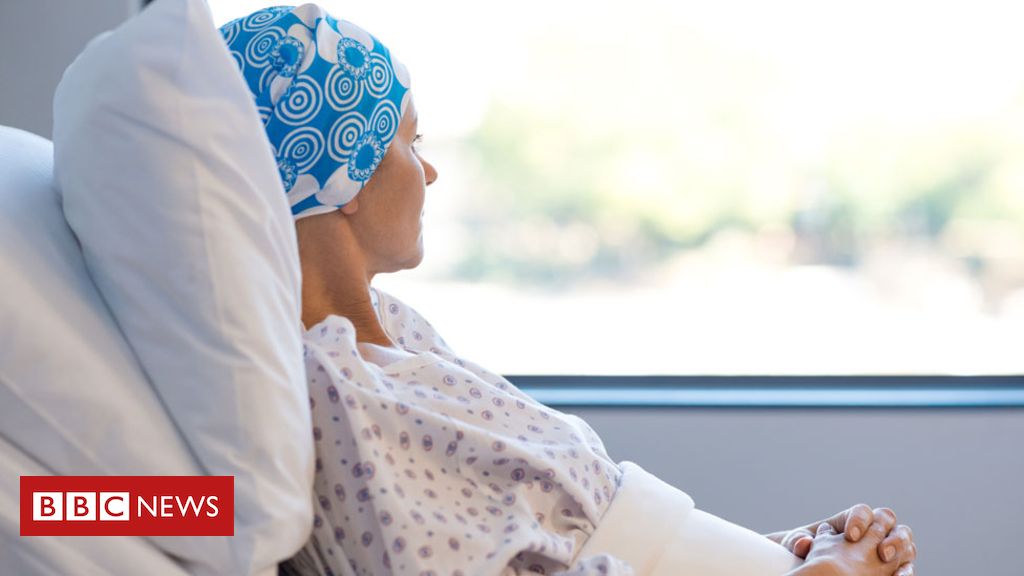
A shortage of cancer doctors will hamper the ability of the NHS to provide cutting-edge care, experts are warning.
A Royal College of Radiologists census of 62 major UK cancer centres found more than 7.5% of consultant posts were vacant, with services maintained only by large amounts of overtime.
It said this was unsustainable and would put treatments at risk.
But the NHS said plans were in place to increase doctor numbers.
Doctor training places are increasing, as is investment in the NHS.
But the college said this was not enough to cover the increases in demand for care, particularly given the number of doctors who are retiring.
Dr Tom Roques, from the college, said: “The UK is seeing more and more fantastic innovations in cancer treatment from the introduction of new immunotherapy drugs to high energy proton beam radiotherapy.
“These doctors are vital to the rollout of these new therapies but we do not have enough of them and our workforce projections are increasingly bleak.”
If you can’t see the NHS Tracker, click or tap here.
What did the census find?
The college asked cancer centres about the number of consultant clinical oncologists they had in post.
These are the senior cancer doctors that specialise in non-surgical cancer treatments, such as chemotherapy and radiotherapy.
It found there were the equivalent of 863 full-time doctors in post.
The centres had another 70 posts that were vacant – with most of those unfilled for at least a year.
That is a vacancy rate of more than 7.5%, compared with 5% five years ago.
The college also asked about the amount of overtime being done.
It found the full-time doctors already in post were working just over six hours extra a week on average.
And, the college said, if this was taken into account, the NHS was 184 clinical oncologists short – a figure it predicted would worsen in the coming years.
What is the impact of this?
The college is worried about the stress and burnout its members are facing, pointing out half of clinical oncologists retire before the age of 60.
And as well as the threat to new treatments, the college said, the shortage of doctors would also be a factor in delays to patients receiving treatment.
Last week, NHS figures in England showed long waits had reached their highest levels since records began, in 2009.
The rest of the UK is also struggling to see patients within the target time of 62 days.
Dr Rosie Loftus, chief medical officer at Macmillan Cancer Support, said: “We know that hard-working NHS professionals are already struggling to cope with escalating workloads, which are in part due to staffing challenges.
“Gaps in the workforce can lead to longer waits to start treatment, which in turn add to the worry and anxiety many people already feel following their diagnosis.
“To meet the bold ambitions for improving cancer care , we urgently need a costed plan to increase and sustain the number of staff needed to deliver them.”
What is being done to tackle the problem?
While there are shortages of staff in place, it is worth pointing out that the overall numbers of clinical oncologists working in the NHS is increasing by about 5% a year.
It is just that these increases have not been enough to cope with the rising demand.
The government has promised more money for the NHS.
In England, services will have an extra £20bn a year by 2023 and cancer has been made a key priority for spending.
Extra funding is also being made available to other parts of the UK, under the plan announced by the prime minister last year summer.
The number of doctors in training is also rising.
A spokeswoman for the Department of Health and Social Care in England said: “Improving cancer care and reducing waits is a priority for the NHS and we recently unveiled a series of commitments as part of the NHS Long Term Plan backed by £200m to fund new ways to rapidly detect and treat cancer.”
